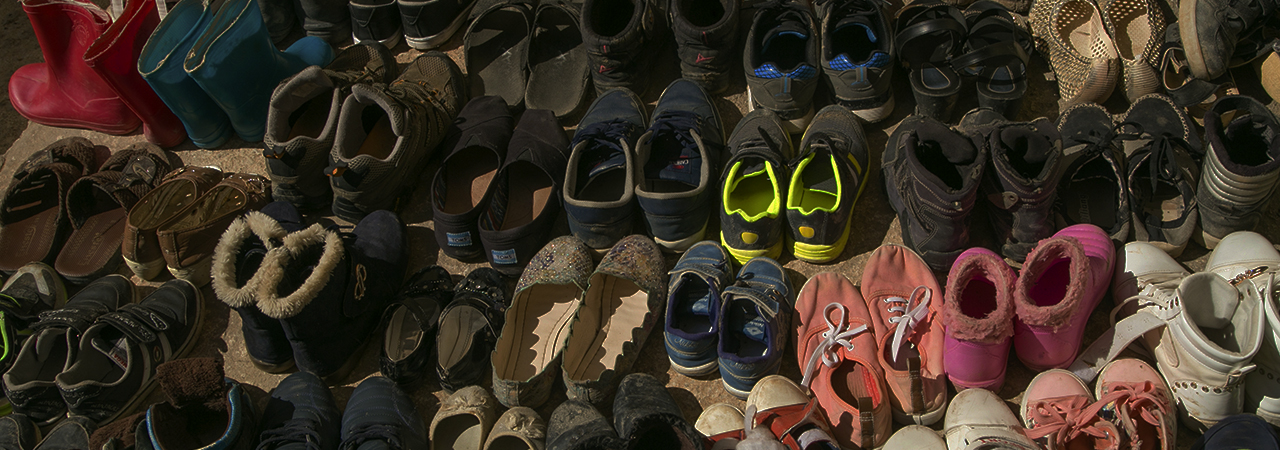Shoes are not worn in Iraqi homes or in the CRS sponsored school in Sheikhan.
Since January 2014, violence in northern and central Iraq has forced more than 3 million IraqisÑincluding religious and ethnic minorities like Christians, Sunni Muslims, Yazidis, and TurkmenÑfrom their homes. Ê ItÕs estimated that 1.2 million displaced Iraqi children living outside official camps in northern Iraq remain unable to attain quality public basic education. Barriers to education include inadequate infrastructures; overcrowding; differences in curriculum; and personnel with limited training on psychosocial support.Ê Ê To meet the needs of so many displaced children, in 2014 CRS established seven Child Friendly SpacesÊin Dohuk and Ninewa governorates in northern IraqÊto provide psychosocial support and a safe space for children to go where they could re-establish a sense of normalcy. A year later, CRS transformed these Child Friendly Spaces into Child Support Centers, where they becameÊtemporary learning spaces that incorporated basic numeracy and literacy while maintaining a supportive psychosocial environment.
Over the course of CRS’ work in Iraq, CRS learned that parents prefer formal education over nonformal learning activities. Accordingly, CRS transformed the Child Support Centers into classrooms recognized by the Departments of Education (DoE) of Ninewa and Dohuk.Ê Ê To date, the CRS education program has served more than 6,300 IDP students grades 1-6. Ê CRSÕ approach to education is holistic and includes integrated psychosocial elements because the emotional wellbeing of a child is critical to his or her development, especially for conflict-affected children.ÊIn addition, CRS invests in teachers and principals through ongoing trainings and school site coaching as well as improving the schoolsÕ infrastructures. ItÕs a collaborative effort with a progressive handover to the DoE.Ê
For the 2016-2017 academic year, there are more than 2,100 students attendin




You must be logged in to post a comment.